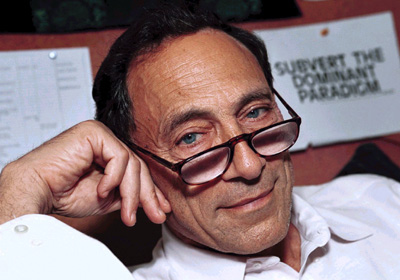
|
Dr. John Mack M.D.  Dr. John Mack Who uncovered Alien Abductions? Alien Abductions Who's on The Mothership? Abduction Medical Procedures John E. Mack, MD John Mack is a physician and professor of psychiatry at Cambridge Hospital, Harvard Medical School, and the founding director of the Center for Psychology and Social Change. He is the author of nine books, winning a Pulitzer Prize in 1977 for A Prince of Our Disorder. Abduction: Human Encounters With Aliens, is Mack's latest book. He has investigated over a hundred cases of abductions. His book chronicles thirteen cases in depth. Mack believes the investigation of human abductions is not just about aliens or UFOs. It is really about how we can expand our understanding of reality and awaken our human potential. As we explore Mack's discoveries, let's see if we can step back and look at a bigger picture. Let's think of ourselves as a three-year old child being taken through a hospital, seeing many things a child would not understand. As Mack says in the preface: "When we explore phenomena that exist at the margins of accepted reality, old words become imprecise or must be given new meanings. Terms like "abduction," "alien," "happening," and even "reality" itself, need redefinition lest subtle distinctions be lost. In this context, thinking of memory too literally as "true" or "false" may restrict what we can learn about human consciousness from the abduction experiences." A Psychiatrist is a Medical Doctor After going to medical school to become a regular doctor, a psychiatrist then goes back to medical school and gets an additional degree in psychiatry. So how was a medical doctor pulled into alien-abduction research? Mack heard about Budd Hopkins, an otherwise normal guy who had been working with people, spaceships, and aliens. Mack's reaction was typical: The guy must be nuts. Through a mutual acquaintance he ended up being introduced to Hopkins and his work. In spite of the insanity of it all, a few things triggered Mack's professional instincts: 1. Minute details of the experiences matched in almost every case. 2. The specifics about abductions had not been presented in mainstream media, so patients were not getting information from those sources, and at the time there had been no books published detailing the experiences. 3. There were physical marks, bruises, scars, and lesions supposedly caused by the experiences, which would not occur when someone imagines an experience. 4. In Mack's medically trained, professional judgement, none of the people seemed to be delusional or exhibit the signs of mental illness. Mack then agreed to work with some patients and the rest is history. Mack Identifies Three Kinds of Information During John Mack's ongoing study of the abduction phenomenon, he was able to classify three distinct kinds of information available to us regarding these events. These three classes of information are extremely important and should be kept in mind at all times while studying any aspect of flying saucer/UFO/alien events. 1. Physical evidence left behind such as burned grass, scars, lesions, bruises, or implants. These things are easily recognizable by modern science. 2. Things we could understand with our science if we had more information or technology. Things which do not seem to violate our understanding of how the universe works. An example might be an advanced propulsion system capable of interstellar travel. 3. Third, and this may be the most important category of all, things which do not fit within the framework of our universal laws. Things such as levels of consciousness we do not know how or have forgotten how to activate, along with unknown life forms who live only on those levels of consciousness. Reading John Mack's book "Abduction" is an absolute necessity if you want to know more about alien abductions and the true capabilities of humans. David Jacobs Budd Hopkins Different Types of Alien Beings Home Page Note - In a tragic accident, Dr.John Mack was killed on September 27, 2004. He was hit by a drunk driver while walking with friends after dinner in London.
|
